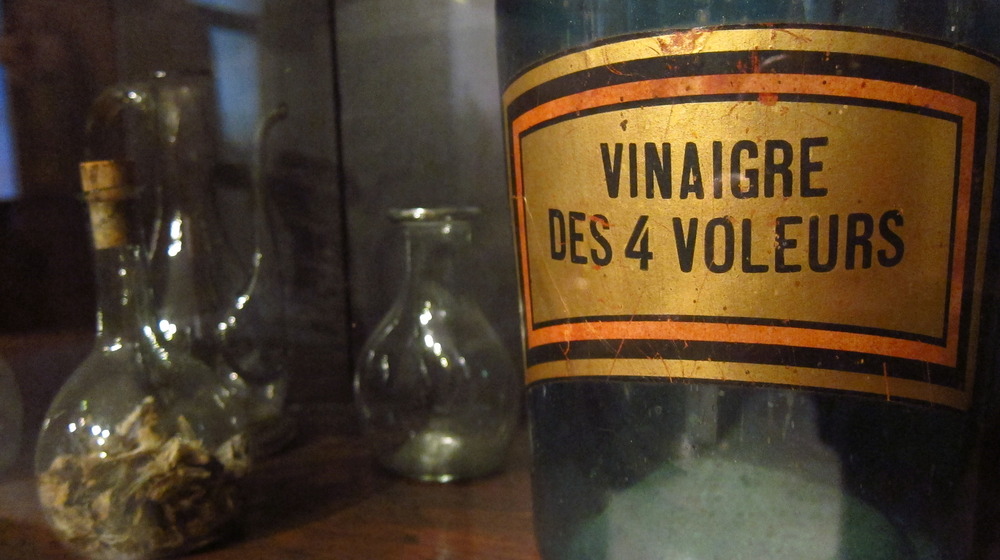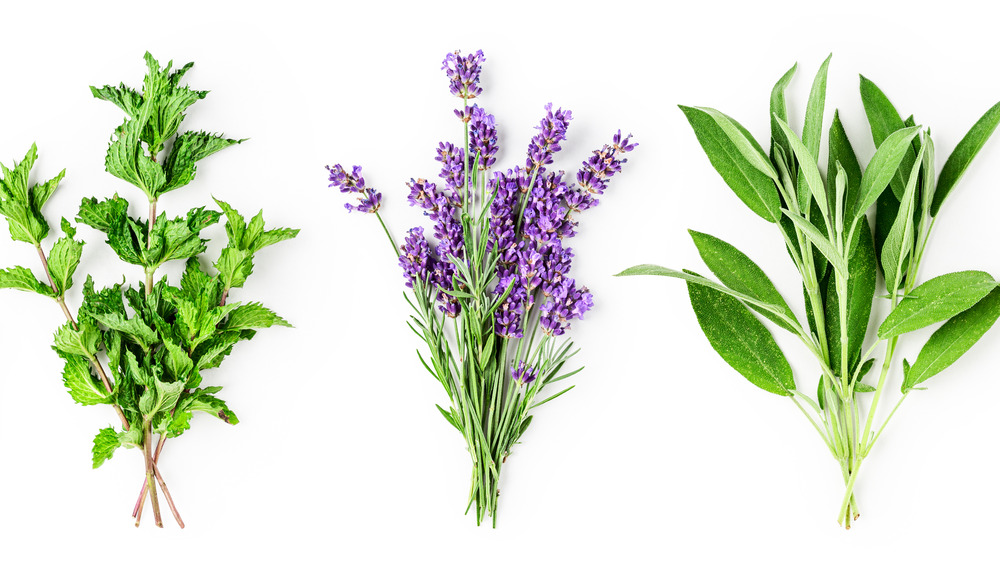What You Didn't Know About Four Thieves Vinegar
Due to recent news cycles, you may have heard about Four Thieves Vinegar lately — and no, it's not a brand name. Four Thieves is a vinegar mix with purported roots back to the plague. A mix of vinegar and fresh herbs, this blend was used to create a tonic that was said to help prevent the illness, although we don't have scientific data to back this up for a variety of reasons (via Nourished Kitchen).
Four Thieves itself is said to have roots in France in the 1770s (via TipNut). The story goes that four thieves (thus the name) were pillaging the sick and dying in plague-stricken France, yet magically didn't become sick due to the topical vinegar mix they had used. In exchange for sharing their recipe, the courts gave them leniency.
While the Four Thieves story is murky, we do actually know quite a bit about the history of medicinal vinegar itself. Health uses of vinegar date back as far as Babylonia, Hippocrates, and Cleopatra (via National Institutes of Health). Vinegar solutions were used topically to clean wounds or prevent infections, and taken orally to manage many conditions from diabetes to croup and stomach ache. Modern uses of medicinal vinegar are just as myriad, and widely used still today.
It's not surprising that this medicinal mixture took off — but just what exactly was it?
Four Thieves has ancient heritage, but modern popularity
Common ingredients in the original mixture often included wormwood, meadowsweet, wild marjoram, sage, cloves, campanula, angelica, rosemary, horehound, and camphor (via Pirate's Secret). The assorted items were left to steep in the vinegar for seven or so days, then applied to a mask or cloth and pulled across the face. While documented antibacterial and useful medicinal properties can be found for almost all of these compounds, we now also know that the masks themselves may have had a strong effect on blocking viral transmission (via WebMD). However it works, this vinegar continues to be popular today.
Modern herbalists and DIYers have toned down the mix of herbs used with the vinegar, now opting for mixes that tend to include rosemary, sage, lavender, thyme, and mint instead. This mix is popular in use for cleaning (as opposed to more toxic cleaners and in place of standard white vinegar). Many people also enjoy the astringent qualities of this mix, as a topical skin cleaner too. You can find multiple recipes online, but remember that distilling your own medicine and treating your own illness are best with expert advice. For safest use, stick to cleaning and do not consume.

